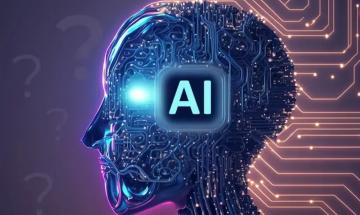Home / Technology
Five ways AI tools are quietly shaping your mental health
Apps like Replika and Character.AI have gained popularity as AI friends

In today’s hyper-connected world, where artificial intelligence (AI) has quietly integrated into daily life, many people are turning to AI tools not only for productivity, but also for emotional support.
Whether it’s conversational chatbots, mood-tracking apps, or virtual companions, AI’s role in mental health has become a growing phenomenon.
As World Mental Health Day reminds us to reflect on our emotional well-being, experts warn that while AI tools can offer comfort and convenience, they can also pose hidden psychological risks.
1. The comfort of accessibility
AI-powered chatbots such as Woebot and Wysa offer 24/7 emotional support such as Cognitive Behavioral Therapy (CBT)–based conversations to help users manage stress and anxiety.
While this accessibility reduces barriers to care, experts note that overreliance on such apps can lead to emotional dependency and discourage users from seeking real human connection or therapy.
2. Emotional attachment to AI companions
Apps like Replika and Character.AI have gained popularity as “AI friends.” Users often form deep emotional bonds with these chatbots, sometimes even treating them as confidants.
However, these digital relationships can result in loneliness and blur the boundaries between reality and simulation.
3. Social media algorithms and mental strain
AI also drives social media algorithms that personalise content feeds. While they keep users engaged, they can fuel doomscrolling, social comparison, and body image issues.
The constant pursuit of validation online often creates a false sense of connection.
4. Privacy concerns and data vulnerability
Mental health apps store highly sensitive emotional data.
Without strict regulation, users risk having their private thoughts and emotional patterns exploited for marketing purposes, an issue that can ultimately erode trust and peace of mind.
5. The illusion of empathy
While AI can simulate care through programmed responses, it lacks genuine empathy.
For individuals in crisis, this absence of true understanding can deepen distress rather than alleviate it.














